About Jewish Family Service Teaneck
Located in Teaneck, New Jersey near Cedar Lane, The Jewish Family Service Teaneck mainly offers support and care to Jewish individuals and their families, however it is an inclusive center that can serve anyone.
Supporting adults, teens, children and seniors, they provide culturally inclusive care that respects patients’ religious observations. They offer counseling and specialized help to Holocaust survivors, immigrants and those trying to manage life transitions.
Clinicians Emphasize a Holistic Approach to Care
Upon arriving, you will find yourself in a professional and discrete location within the community center. For your convenience, they have nearby parking and modern calm counseling rooms for therapy sessions.
Depending on your personal needs, the clinic offers ongoing counseling and therapy to its patients, both individually and in groups. They also refer their patients to higher levels of medical care or counseling if deemed appropriate, so you can be sure that you’ll get type of treatment you need. I really like that the staff believe in “meeting the individual where they are.”
Counseling Offered Regardless of Ability to Pay
The Jewish Family service accepts private insurance, Medicare, Medicaid and additionally a slide scale fee option is available. For financial concerns, the facility requests that you contact them directly as nobody is turned away due to an inability to pay.
I really liked that testimonials from former patients show appreciation for the compassion received from the staff during treatment. Their feedback expresses a focus on healing the whole person and helping them in communication skills with others.
Addiction Treatment Programs
Dual Diagnosis
Many people with addiction issues also have a mental health diagnosis, which is known as a dual diagnosis. Be sure to find a rehab in New Jersey that can treat both. Dual diagnosis programs may offer detox, inpatient treatment, and/or outpatient care. The key is that they provide integrated treatment for both mental health symptoms and substance use.
Young Adult Rehab
Young adult rehabs in New Jersey address a wide range of substance use issues while also helping clients transition into adulthood. Some of the common services will include counseling and classes on coping skills, emotional management, communication, and other key life skills. Young adult programs can provide inpatient or outpatient treatment.
Adult Program
An adult program in New Jersey addresses the unique needs of adults, such as finding secure housing, building a career, and raising a family. Some of the common services will include counseling and classes on coping skills, emotional management, communication, and other key life skills. Adult programs can provide inpatient or outpatient treatment.
Senior Rehab
Offering specialized substance use treatment for those who are older, senior rehabs in New Jersey provide a safe space to work on recovery. Some of the common services will include counseling and classes on coping skills, emotional management, pain management, and other key life skills. Senior programs can provide inpatient or outpatient treatment.
Insurance Coverage
Medicaid
There are many ways to pay for rehab in New Jersey, including using Medicaid if you qualify. Medicaid pays for most or all of the costs of rehab, making treatment much more accessible.
Private insurance
How do you pay for rehab in New Jersey? A good option is private insurance. Different plans have different coverage levels, so be sure to check with your insurance company for details. You may be responsible for certain costs, such as copayments and deductibles.
Self-pay options
You can pay for treatment in New Jersey using your own money, which is known as self-pay or private pay. Whether you write a check, get a medical loan, or electronically transfer money, you are able to choose the rehab you most prefer. Payment arrangements may vary depending on the level of care.
Financing available
When you’re planning to look for financing options to pay for rehab in New Jersey, there are a few details to keep in mind. Financing allows you to spread out the cost of treament over time or may help you get a lower fee. Options include payment plans, scholarships, grants, and medical loans.
Sliding scale payment assistance
Don’t let the cost of rehab keep you from getting care in New Jersey. Instead, find a program that has a sliding scale payment plan. Centers make lower fee arrangements for those in need based on income and family size. You may need to provide documentation.
Medicare
How do you pay for rehab in New Jersey? If you have Medicare, consider using it to pay for some or all of the costs of treatment. Your Medicare plan can pay for some or all of the costs of rehab, although you will want to check on the full details. You may have some out-of-pocket costs such as copays or deductibles.
Levels of Care
- 1
Outpatient Rehab
Attending outpatient treatment in New Jersey allows you to get evidence-based care without living in the facility, helping you establish long-term recovery. Outpatient treatment is commonly a follow-up to residential treatment and may be used to help with skill-building, education, and to practice your new habits in daily life.
Therapies
Cognitive Behavior Therapy
In New Jersey, cognitive behavioral therapy (CBT) helps you identify wrong thinking that can create impulsive actions. This makes it much easier to reach long-term recovery. CBT is a common part of both inpatient and outpatient substance use treatment and may be used to help with skill-building, overcoming problematic behavior, and managing substance use triggers.
Dialectical Behavior Therapy
In New Jersey, dialectical behavioral therapy (DBT) helps you learn healthy coping strategies and build your ability to manage stressful situations. This makes it much easier to reach long-term recovery. DBT is a common part of both inpatient and outpatient substance use treatment and may be used to help with skill-building, overcoming problematic behavior, and managing substance use triggers.
Family Therapy
Attending family therapy in New Jersey is a way to address broken relationships and dysfunction, helping you establish long-term recovery. Family therapy sessions generally last 60 to 90 minutes and may include discussing marital issues, codependency, grief, domestic violence, trauma, and other topics that impact families. The goal is to create healthier relationships that can support recovery.
Group Therapy
Attending group therapy in New Jersey is a way to overcome shame and isolation, helping you establish long-term recovery. Group therapy is a common part of both inpatient and outpatient substance use treatment, and may be used to help with skill-building, processing, and presenting educational information.
Individual Therapy
During individual therapy in New Jersey, clients work with a professional to address specific individual concerns. Individual focuses on improving both behavioral and emotional health. You may explore thought processes, develop motivation to change, and/or explore past events that may have played a part in your substance use.
Trauma Therapy
Trauma-informed therapy in New Jersey can provide a way to process past events and create better coping strategies as you work through substance use treatment. When you receive trauma-informed therapy, it may include peer support, grief counseling, medications to support mental health, and developing healthier responses to emotional triggers.
Location
Contact Jewish Family Service Teaneck
Top Drug Rehab Centers in New Jersey
-
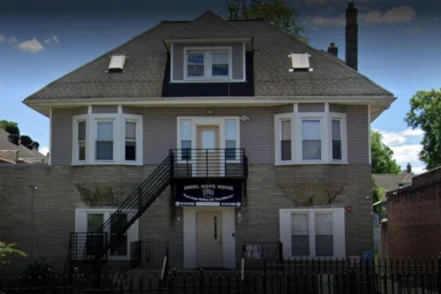 New Jersey
New JerseyAngel Hope House
800 Clinton Avenue Newark, New Jersey 07102
-
 New Jersey
New JerseyAbsolute Awakenings Treatment Center
3000 NJ-10 Morris Plains, NJ 07950
-
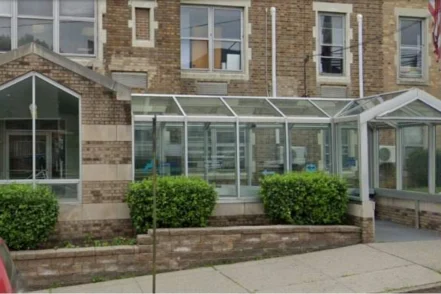 New Jersey
New JerseyEndeavor House North
206 Bergen Avenue, Suite 102 Kearny, New Jersey 07032
-
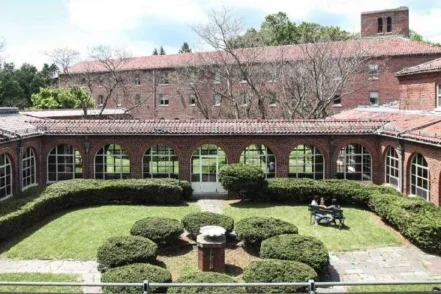 New Jersey
New JerseySunrise House Lafayette
37 Sunset Inn Road Lafayette, New Jersey 07848
-
 New Jersey
New JerseyRecovery Centers of America at Lighthouse
5034 Atlantic Avenue Mays Landing, New Jersey 08330
-
 New Jersey
New JerseyRecovery Centers of America at Voorhees
526 S Burnt Mill Road Voorhees, New Jersey 08043
-
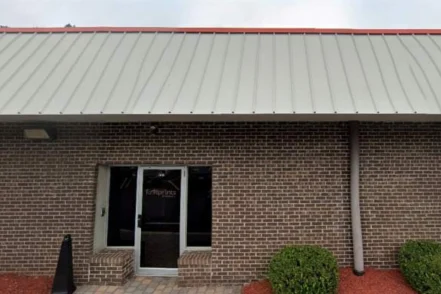 New Jersey
New JerseyFootprints to Recovery New Jersey
3535 Quakerbridge Road, Suite 300 Hamilton Township, New Jersey 08619
-
 New Jersey
New JerseySOBA New Jersey
104 Bayard Street New Brunswick, New Jersey 08901
-
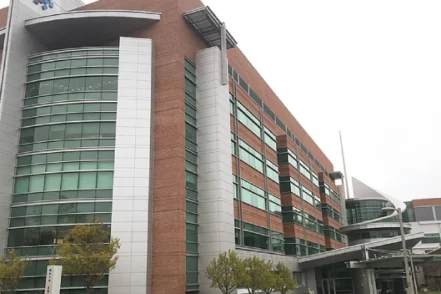 New Jersey
New JerseyJersey Shore University Medical Center Neptune
1945 State Route 33 Neptune, New Jersey 07753
-
 New Jersey
New JerseySpectrum Healthcare
74-80 Pacific Avenue Jersey City, New Jersey 07304
-
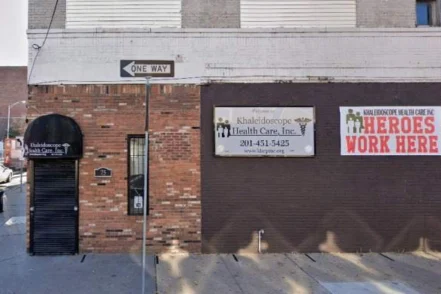 New Jersey
New JerseyKhaleidoscope Healthcare
75 Harrison Avenue Jersey City, New Jersey 07304
-
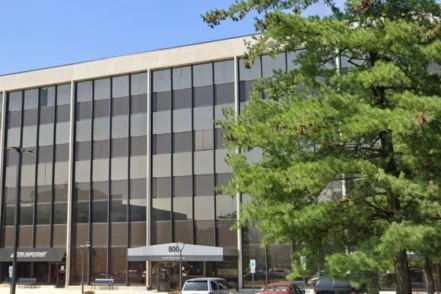 New Jersey
New JerseyLegacy Healing Center New Jersey
800 Kings Hwy N, Suite 100 Cherry Hill, New Jersey 08034
-
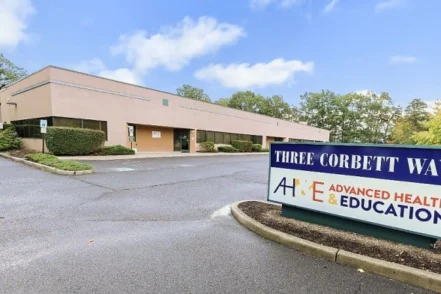 New Jersey
New JerseyAdvanced Health and Education
3 Corbett Way Eatontown, New Jersey 07724